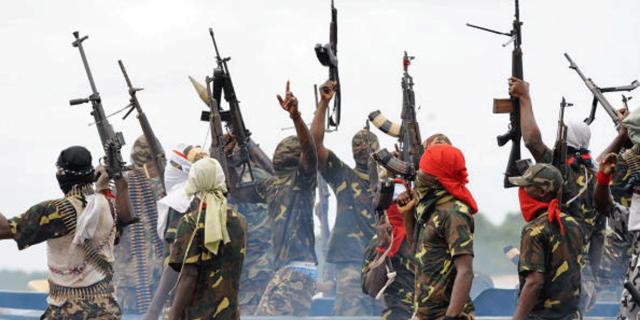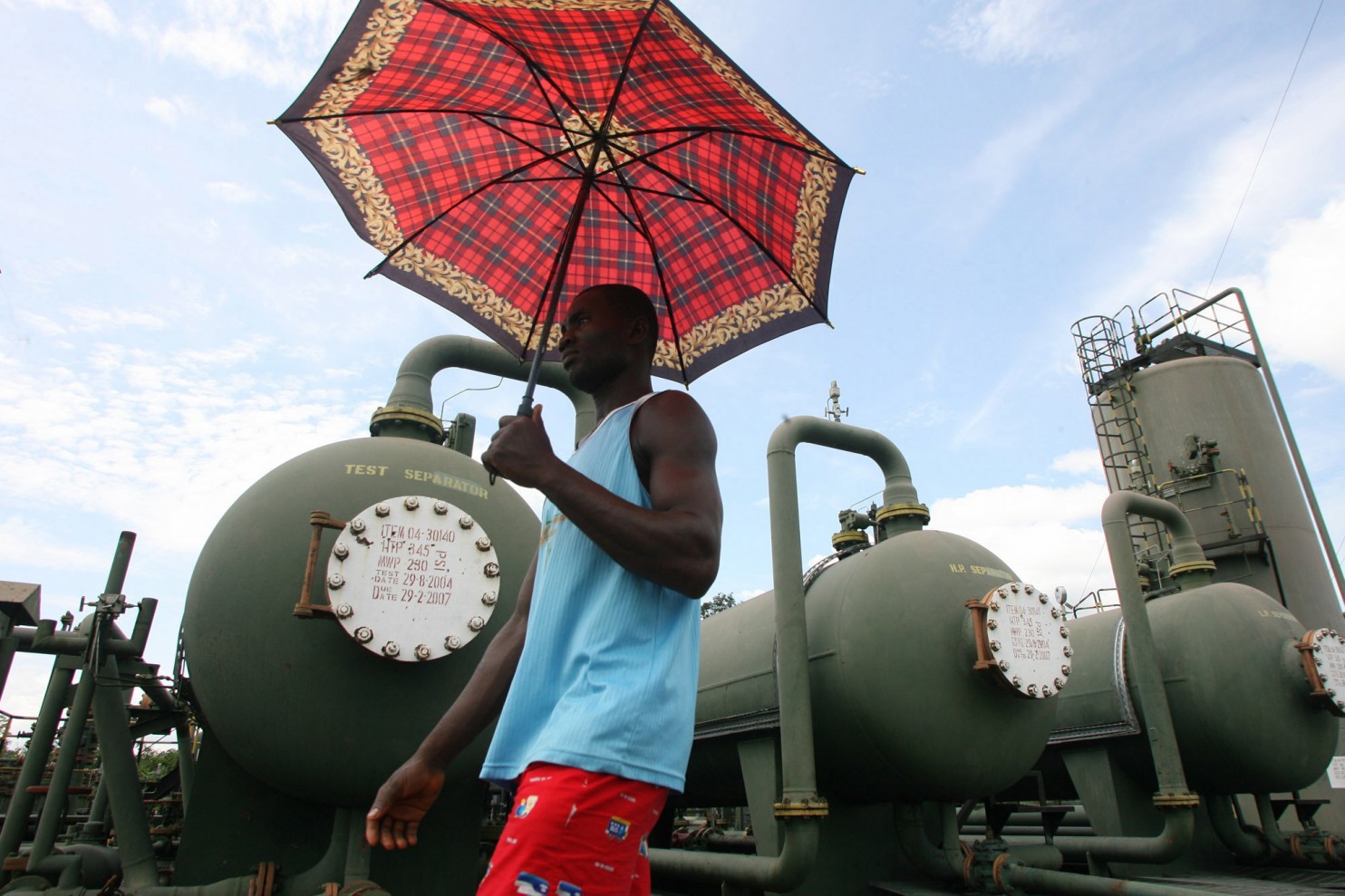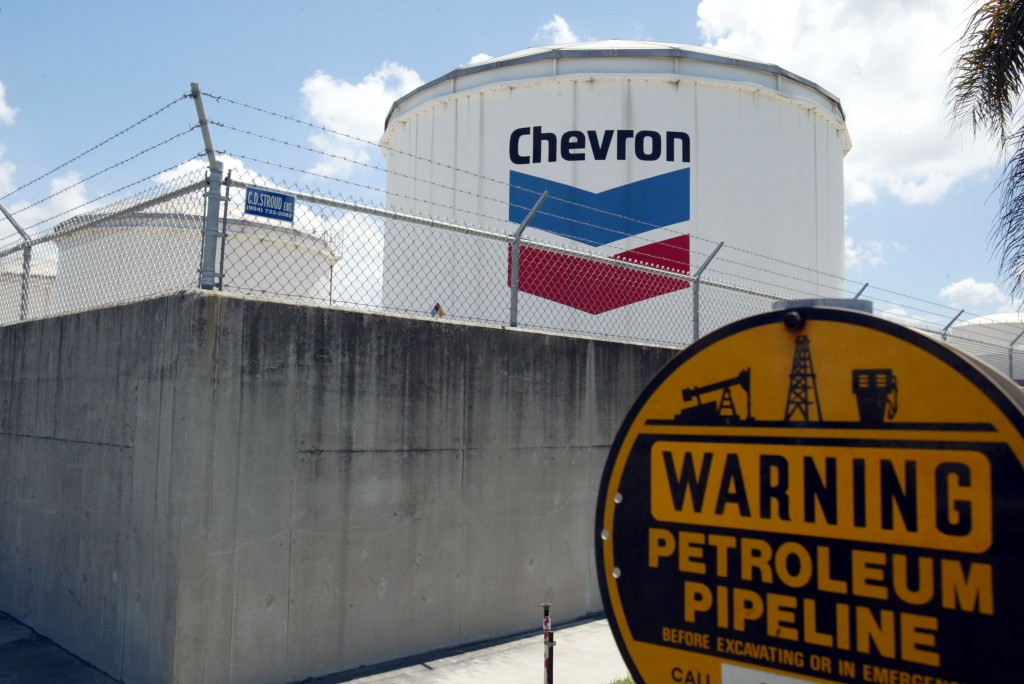
Charles Kennedy, Oilprice.com /
The Niger Delta Avengers (NDA), the group behind the string of attacks that have halted major operations in the oil-rich Niger Delta, have issued a threat to all oil companies in the region to shut down and leave or face stepped up attacks.
The ultimatum was issued on Thursday, and signed by spokesman Mudoch Agbinibo.
“The Niger Delta Avengers is giving two weeks ultimatum to all oil companies in our region to shut down and evacuates their staff,” the statement, carried by Nigerian media, allegedly read.
The group said that failure to comply would result in bloody attacks that the Nigerian military would be incapable of stopping.
According to Nigerian media, NDA sent the statement by email, specifically warning: “If at the end of the ultimatum and you’re still operating. We will blow up all the locations. It will be bloody. So, just shut down your operations and leave.”
The group also specifically noted oil blocs that are allegedly owned by former Nigerian vice-president Alhaji Atiku Abubakar, Defense Minister General Theopilus Danjum, for petroleum minister Alhaji Riwalnu Lukman and others.
The group is taking issue with the fact that most of the oil wells in the area are owned by figures outside the Niger Delta, indicating that locally owned or locally connected ownerships will be spared attack.
In the fallout from the latest series of attacks, Royal Dutch Shell has been forced to evacuate staff from its Eja OML 79 production facility.
On Monday, Nigerian officials said that Chevron had begun to evacuate staff from its facilities in the Niger Delta follow attacks on its assets. Several Chevron facilities, such as a platform and oil flow station, were attacked by militants last week.
On Thursday, militants vowed to attack Chevron again as the company attempts to repair damage.
“We made it clear that no repair works should be done until our demands are fully met,” the NDA spokesman was quoted as saying.

Elena Holodny in Business Insider Reported how Chevron shut down an offshore oil facility after “unidentified attackers” bombed it last week, causing an oil spill.
And a new militant group calling itself the Niger Delta Avengers has claimed responsibility for the attack, according to the WSJ.
Notably, this attack is not an isolated incident, but rather reflects the deteriorating political and security dynamics posing an immediate threat to Nigeria’s oil output.
Since the government ordered an arrest warrant for members of the Movement for the Emancipation of the Niger Delta (MEND), including the ex-leader Government Ekpemupolo, the country has seen a spike in attacks this year, including one on the Forcados export pipeline operated by Shell. (The Avengers have taken credit for this attack, too, according to reports cited by Bank of America analysts.)
The Niger Delta Avengers reportedly want locals in the Niger Delta to have more control over the oil resources in the region, as well as higher living standards for those living there and the continuation of the Niger Delta amnesty program, according to Bank of America Merrill Lynch’s Oyin Anubi.
(Although, Anubi cited local press reports noting that Ekpemupolo has tried to distance himself from the Niger Delta Avengers, who aren’t part of the existing Niger Delta Amnesty program.)
The Avengers’ agenda seems to parallel the situation back in the 2000s, when armed militant groups, including MEND, routinely kept hundreds of barrels of oil off the market.
At the time, MEND portrayed “itself as political organization that wants a greater share of Nigeria’s oil revenues to go to the impoverished region that sits atop the oil,” according to The Economist.
In 2009, the government signed an amnesty agreement pledging to provide monthly cash payments and vocational training programs to the nearly 30,000 former militants in exchange for cooperation.
But although the arrangement was a pretty good band-aid, it failed to address the fundamental drivers of instability in the region, such as poverty, corruption, and the proliferation of weapons.
Moreover, Nigeria’s current economic slump adds more pressure to the situation, and the current administration under Muhammadu Buhari has vowed to reduce corruption and excessive government spending.
Notably, the recent attacks have taken a toll on oil output in Nigeria. According to data cited by Anubi, oil production is now down to mid-1990s lows, with unplanned supply outages ranging from 200,000 to 300,000 b/d.
And although the country has previously delt with similar threats, Anubi argues that there are three major reasons to be more concerned now than in previous years:
- The large-scale attack on an offshore facility — as opposed to an onshore one — shows that the scale of militancy has increased.
- The regulation of Nigeria’s oil sector remains a bit unclear as a new bill is intended to split the national oil company into two parts.
- The current Nigerian government under Buhari, which aims to reduce corruption and excess expenses in the lower oil environment, is “incompatible with spending large sums of money to appease Niger Delta militants,” writes Anubi.
In short, as RBC Capital Markets’ Helima Croft noted back in late March, “the government appears to be on course for a head on collision with armed militants in the oil region.”





